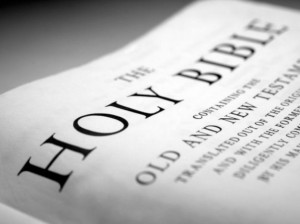 It is popular among the elite Bible scholars and academy-trained theologians to sneer at the uneducated lay person who seeks to teach Scripture and theology to others as being “untrained” and therefore, unable to accurately teach others what God is like, what He says in Scripture, and how to live life in light of what we learn.
It is popular among the elite Bible scholars and academy-trained theologians to sneer at the uneducated lay person who seeks to teach Scripture and theology to others as being “untrained” and therefore, unable to accurately teach others what God is like, what He says in Scripture, and how to live life in light of what we learn.
It is often taught to know the Bible, to teach others, and to truly understand theology, you need a Ph.D. from a leading seminary and expert knowledge of Greek and Hebrew.
We Need Professionals
The argument from these professional theologians and scholars most often goes like this:
If I had a brain tumor, I would not go to my neighbor to fix it. I wouldn’t even go to a neurosurgeon who had just received his MD. If someone is going to be operating on my brain, I want the best neurosurgeon there is. I will research the available doctors in my area, and find the one with the most experience. And if I cannot find one that is suitable, I might fly across the country to get help from someone who is suitable.
So also with theology. We cannot get help on Scripture and theology from just anyone. We need to find the best and most knowledgeable — the ones with the most training and experience.
It’s true. We need a doctor when we have a brain tumor. But thank goodness we don’t all get brain tumors!
To the contrary, most of our day-to-day health issues do not require a professionally-trained doctor at all!
From a very early age, we learn that when we are sick, the first thing to do is “go to mom” who may not have a single hour of professional medical training, but can nevertheless help us better and more quickly than any doctor. As we grow up, we learn to help ourselves, and get input and advice on medical issues from friends and family members. We learn to read the labels on medicines at the pharmacy, and follow the commonly-known health advice of society and culture.
For probably 99% of the health issues we face in life, we don’t need a professionally-trained doctor. For most of our health issues in life, going to a doctor is a a waste of time and money, and may actually make things worse.
So also with theology.
For most of our spiritual needs, we don’t need the professional, academic theologian or Bible scholar.
 I have even read a few theologians recently who have been pining for the good old days when the average person in the pew couldn’t read the Bible for themselves!
I have even read a few theologians recently who have been pining for the good old days when the average person in the pew couldn’t read the Bible for themselves!
Some modern theologians are actually advocating a return to a church-sanctioned professional class of clergy who do all the Bible reading, teaching, preaching, and theologizing. The Reformation put the Bible back in the hands of the people, and there are some scholars and theologians today who think this was a mistake, and want to take the Bible back from the people.
Without fail, these Bible scholars and theologians use this “if you had a serious sickness you would go to a doctor” analogy to defend their view.
Have you ever heard pastors, scholars, and theologians use this argument?
The Logical Fallacies of the Professional Bible Scholars
Ironically, this argument just proves why we need theologians and Bible teachers who are NOT academy trained. The absolute nonsense of this argument is evident to everybody except the academy trained professional whose mind has become so impressed with their own knowledge and training that they cannot see the immense logical fallacies of their own arguments.
Ultimately, what it comes down to is a question of power and control. The professional theologian is tired of being challenged by the unprofessional. It is just like when you go see a doctor and tell him what you read on WebMD about your condition. They will roll their eyes, sigh, and ask you to stop trying to diagnose your own diseases.
And truth be told, they are correct… about 1% of the time.
The rest of the time, the information you get on WebMD and from talking to friends and family is going to be just as good–if not better–than the information you get from the doctor. Your friends and family know your history, your issues, your background, your problem, and what you are dealing with. They will listen to you, offer advice, and sit with you through the thick and thin of your problem. The doctor — most of them anyway — just wants to get on to his next appointment.
Seminary Training is Good
Do not misunderstand: I am not opposed to higher education and formal seminary training. I have eight years of it myself. I can put letters after my name if I want to. I appreciate and value the advanced training I received. But just as with a doctor diagnosing a disease, the “expert opinions” of the Bible scholars are only needed about 1% of the time, and even then, a person would be wise to get “a second opinion” or even a third or fourth.
 The rest of the time, the average Christian can do pretty well in their life simply by following a few generally accepted spiritual heath rules:
The rest of the time, the average Christian can do pretty well in their life simply by following a few generally accepted spiritual heath rules:
- Read the Bible as you would any other book; not as a magic book full of secrets and mysteries.
- Discuss the Bible in a community of other people. Maybe this will just be a friend or your spouse.
- Based on the values you discover in the Bible, try to love and serve other people as much as possible.
That’s it! 99% of the time, these three general heath principles of following Jesus will not lead you astray.
Will there occasionally be a need for the trained Bible scholars, the academic experts, the Greek and Hebrew experts, and theological masters? Of course there will be, just as in life, we occasionally go need to see a doctor. But most of the time we will be just fine with what we can learn on our own with friends and family around us.
Have you ever had someone discredit what you say about Scripture because you don’t have as much education as they do? Have you ever thought, “If only I knew Greek?” Do you ever feel like a second-class Christian because you don’t have a Master’s in Theology or a Ph.D. in New Testament?
Let us know about these experiences in the comments below.




Part of the difficulty, beyond our wanting to think in worldly terms about organization and education, is that we have a confused vocabulary as disciples. Theology according to Jesus, as far as I can tell, is knowledge of God by His self-revelation to us. Theology has become, since the Enlightenment, what humans say about God and even what humans say about humans speaking of God. So, we end up with Christians who speak in theological terms and judgments about not being involved with Theology.
It is difficult to be a disciple of Jesus and contemplate Scripture without engaging in the things involved with the science of knowledge of God; even less possible is it to be instructed without being engaged in education. Hence, I enjoy a poster’s use of “uneducated” since he is pointing at the error of such bias. I am involved with TGSAT as a student of Apologetics and a degree in Theology. It is not formally recognized, yet is an excellent example of tuition-free education offered by Christians (and in this case, Dr. Philip and Cherian are Brethren in India and actively involved in discipleship, apologetics, and education.)
While it is true that none of the Apostles needed a formal education for their position, we cannot say they were not educated by Jesus and others; even Paul not only was educated in the worldly and in religious sense, but he taught “school” every day for two years in Ephesus after being rejected by the synagogue.
I am convinced we are going to be learning throughout eternity, since we who are creatures and thus finite, could never exhaust the infinity of our great God and Savior.
Great points! Yes, “theology” has drastically changed since the enlightenment. We have a different understanding now of what it is and how to do it.
I also agree that we will be learning throughout eternity. The idea really excites me. Thanks for weighing in!
this goes to the heart of it. I and others are still not convinced Jesus could read and write(apart from a doodle) But many early Christians believed themselves to be saved. There are no words spoken by Jesus to imply or state that the largely illiterate population would be barred from Heaven by their illiteracy. Far from it. I know illiterate Christians and there is no way I can see that their SPIRITUAL lives are blighted.
My thoughts are, fair enough, largely intuitive. History’s and folklore’s adage is that no amount of scholasticism can guarantee salvation. And a true, righteous, living out of faith! It’s a hard one but, amongst the “all” that I am required to forsake, could I include the ability to read and write? I might be able to if that DESIRE to read and write were a vanity that kept me from the Lord. Last question, why are so many well off university educated people desperate to believe that Jesus definitely was not illiterate?
I was so happy to read this article that I found on Twitter. I am a Bible teacher & Christian author. I have often questioned my lack of formal education and but will no longer.
Yep! Sometimes formal education is education into ignorance. I am glad I have mine, but sometimes I think it holds me back…
With all do respect to the Bible scholars. The Bible isn’t a secular book. It’s the word of God and without the Holy Spirit, it’s basically a sealed book to those who haven’t been born again of the Spirit. A formal education has absolutely nothing to do with understanding the scriptures. My experience has been that, a person that prays and fasts much, seeking God’s presence, will have infinitely more knowledgeable, understanding and insight than any spiritually dead so call Bible scholar. This is spiritual and the natural man cannot know the things of God unless he is born again and Spirit filled. The most foolish and erroneous things have been said by so call Bible scholars. The Pharisees were the scholars of those times and they knew nothing.